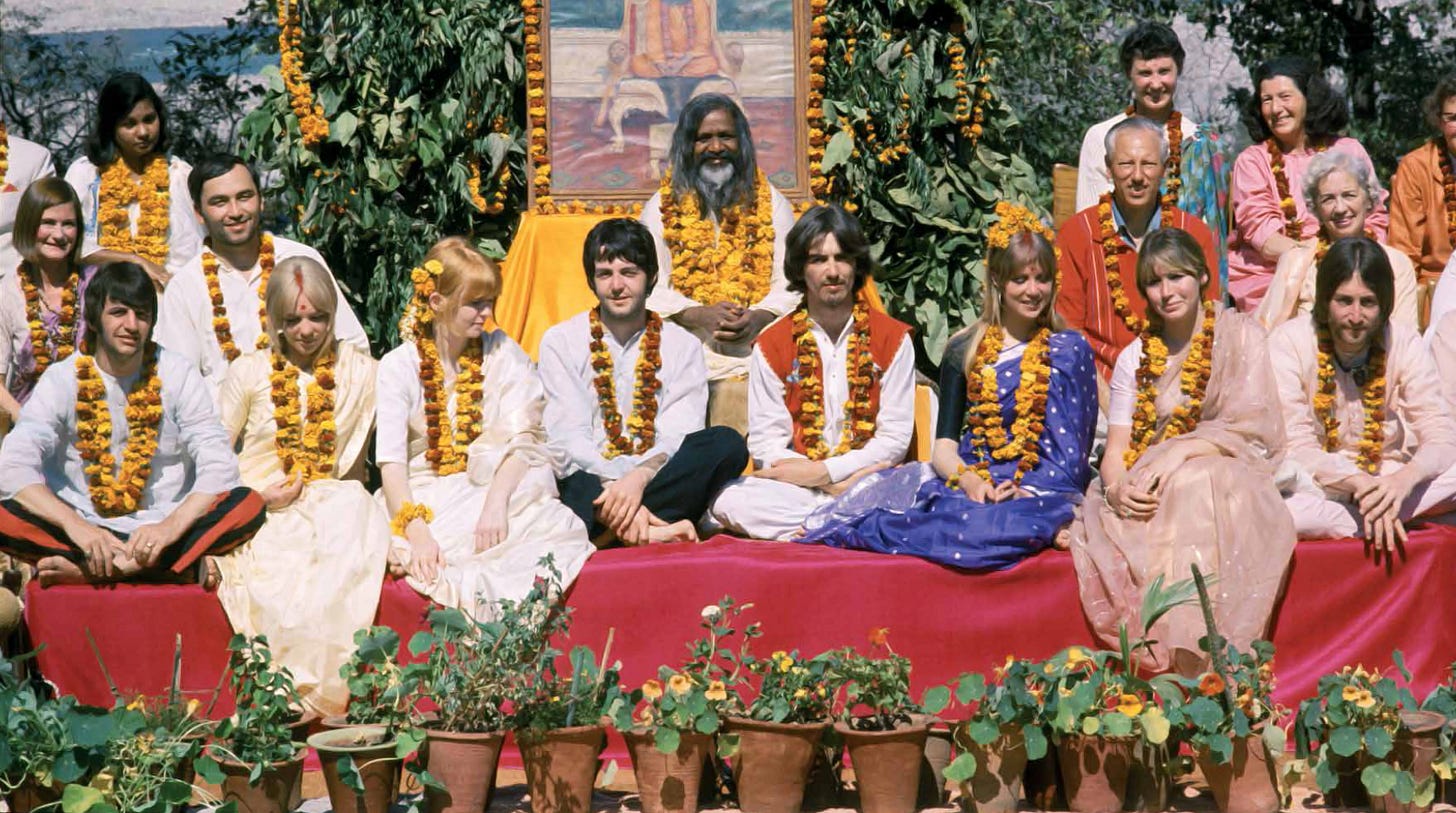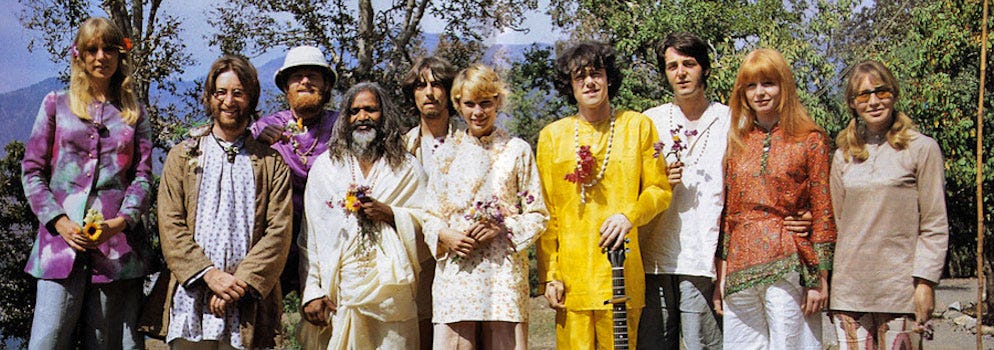The Beatles' Trip To India
The Beatles' trip to India in the late 1960s is a fascinating episode in the history of popular culture, marking a significant phase in the band's development, both musically and personally.
This journey was not just a retreat but a turning point in their lives and careers, influencing their music and bringing Eastern spirituality into Western consciousness.
Prelude to the Trip
The Beatles' interest in Indian culture and spirituality was sparked by George Harrison's introduction to the sitar, an Indian musical instrument, which he first incorporated into their music in the song "Norwegian Wood (This Bird Has Flown)" from the 1965 album "Rubber Soul." Harrison's subsequent visit to India to study the sitar under the guidance of Ravi Shankar further deepened the band's interest in Indian spirituality and culture.
Maharishi Mahesh Yogi and Transcendental Meditation
The Beatles' exploration of spirituality led them to Maharishi Mahesh Yogi, an Indian guru who introduced them to Transcendental Meditation (TM). They first met Maharishi in August 1967, after attending one of his lectures in London. Intrigued by his teachings, the Beatles attended a ten-day meditation retreat in Bangor, Wales. The sudden death of their manager, Brian Epstein, during this period further drove the band's quest for spiritual meaning.
The Journey to India
In February 1968, the Beatles, along with their wives, girlfriends, and a few friends and associates, traveled to Rishikesh, India, to attend an advanced Transcendental Meditation training session at the Maharishi's Ashram. This period is often referred to as the Beatles' "Indian sojourn."
Life at the Ashram
The time the Beatles spent at the Ashram was marked by a simple, monastic lifestyle quite removed from their usual world of fame and excess. Their days were structured around meditation sessions, lectures by the Maharishi, and periods of rest and reflection. This environment of tranquility and disconnection from the external world provided the band members with the space to engage in introspection and creative exploration.
Creative Outburst
The tranquil setting and the discipline of meditation had a profound effect on the Beatles' creativity. It is said that they wrote many songs during their stay, some of which appeared on the "White Album" (officially titled "The Beatles") and later releases. Songs like "Dear Prudence," "Mother Nature's Son," and "Sexy Sadie" (the latter reflecting a more critical view of the Maharishi) were directly inspired by their experiences in India.
Departure and Legacy
The Beatles left India at different times and under varying circumstances. Ringo Starr was the first to leave, citing discomfort with the food and concern for his family. Paul McCartney left next, followed by John Lennon and George Harrison, who stayed the longest. Their departure was marred by controversy, including disillusionment with the Maharishi over allegations of impropriety, which later influenced their view of him and the experience as a whole.
Despite the mixed feelings and controversies surrounding their trip, the Beatles' sojourn in India left an indelible mark on their music and personal philosophies. It popularized Indian music and culture in the West and sparked a widespread interest in Eastern spirituality and meditation. The songs written during and inspired by their time in India are considered among their most introspective and innovative, contributing to the band's enduring legacy.

